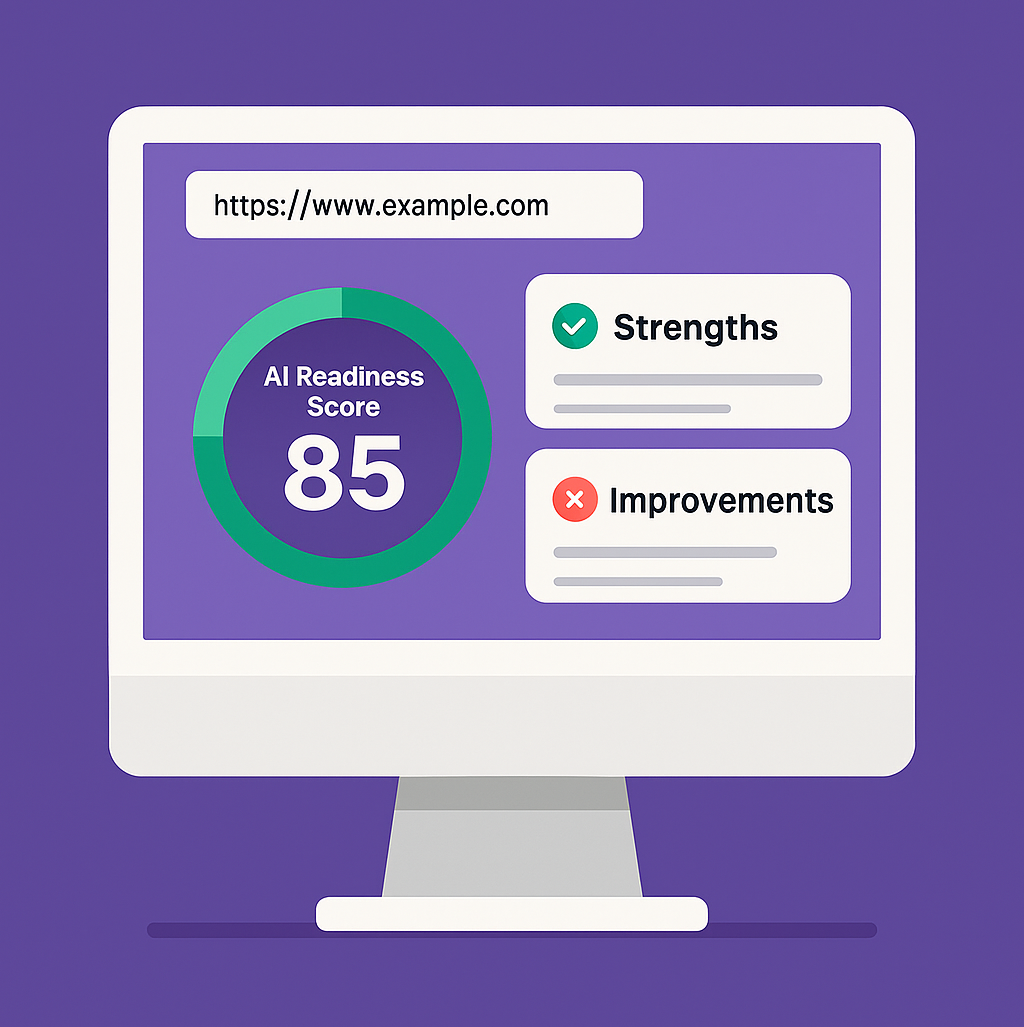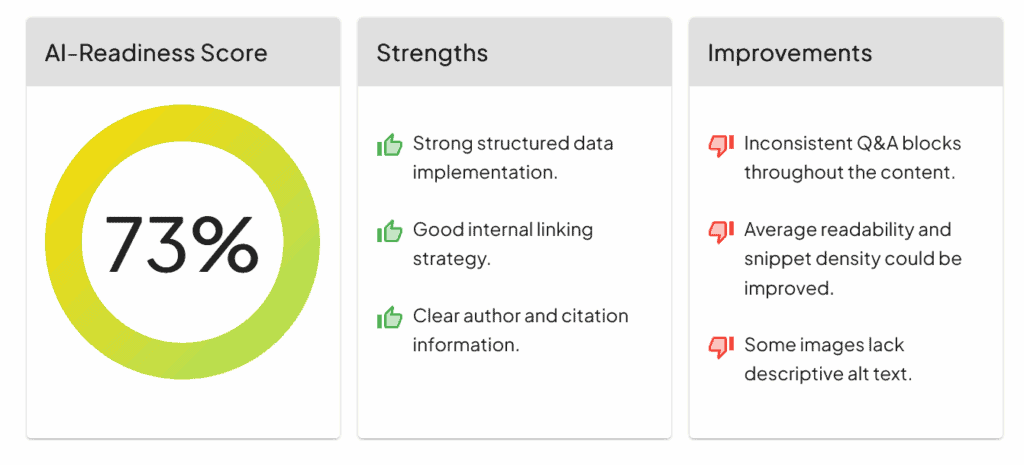AI Readiness Tool

With AI-driven search experiences like ChatGPT’s answers and Google’s AI Overviews reshaping how people discover information online, traditional SEO is no longer enough. Websites now need to be optimized not just for search engines — but for AI summarizers.
Enter Purple Leaf’s AI Readiness Tool, a simple yet powerful solution that evaluates how well your website is prepared for the age of AI search.
What Is the AI Readiness Tool?
The AI Readiness Tool by Purple Leaf lets you instantly check your website’s performance in AI-powered search environments. You simply:
- Enter your website URL (homepage, blog, pricing page, etc.)
- Click “Generate”
- Instantly receive an AI-readiness score (0–100) along with strengths and improvement suggestions
You don’t need to install anything or wait days for a report — the analysis happens in seconds.
How the Tool Works
The AI Readiness Tool scans your page and evaluates key factors that influence how AI systems interpret, summarize, and surface your content. It looks at:
- Structured Data Markup (e.g., schema)
- Meta Tags (title, description)
- Heading Hierarchy
- Internal Linking
- Presence of Q&A blocks
- Snippet Optimization (paragraph length, bullet points, etc.)
- Alt Text for Images
- Author and citation visibility
Based on this, the tool provides a readiness score and categorizes feedback into Strengths and Improvements.

Strengths: Positive Signals the Tool Finds
Based on sample results, here are some common strengths websites display:
-
Well-Implemented Structured Data
Pages that use schema.org markup (like FAQs, articles, product info) make it easier for AI systems to understand the content. -
Complete Meta Information
Pages with optimized meta titles and descriptions help both AI and traditional search engines deliver accurate summaries. -
Strong Q&A Blocks
Q&A sections, like those seen on FAQ pages, directly feed AI tools with concise and useful answers. -
Clear Heading Hierarchy
Well-organized headings (H1 → H2 → H3) make the content easier for AI systems to break down and reference logically. -
Internal Linking
Sites with smart internal linking help AI systems connect context across multiple pages. -
Author Transparency
Pages that clearly mention the author and citation sources earn trust, especially with AI tools aiming to reduce misinformation.
Improvements: Where Most Sites Need Work
Here are some typical improvement areas flagged by the tool:
-
Missing or Weak Q&A Sections
AI tools love clear Q&A blocks — many pages miss out by not formatting common queries this way. -
Poor Snippet Density
Long, dense paragraphs reduce the likelihood of your content being picked up as a snippet or AI-generated answer. Shorter, punchier sections are better. -
Inconsistent Heading Use
If your headings jump from H1 to H4 to H2 without structure, AI systems struggle to interpret hierarchy and intent. -
Missing Alt Text on Images
Without descriptive alt tags, important visuals become invisible to AI readers. -
No Clear Author or Citations
For informational content, a lack of authorship and sources can lower credibility in the eyes of AI systems. -
Overly Complex Language
AI tools prefer content that’s easy to summarize. Simplifying your language can improve readability and visibility.
Why This Matters More Than Ever
Google’s AI Overviews and platforms like ChatGPT are now generating answers based on the content of your website. If your site isn’t AI-friendly, it could be skipped — even if it ranks high in traditional SEO.
Using Purple Leaf’s AI Readiness Tool helps you identify what’s working and what’s not — so you can take action today, not after traffic drops tomorrow.
Ready to See How Your Site Performs?
Try the AI Readiness Score Generator today and get a free score with instant insights. Plus, you can sign up for 15 days of full access to track improvements and optimize further.
As AI search becomes the new norm, tools like this — combined with automation from Purple Leaf — are essential for future-proofing your website and maximizing visibility.